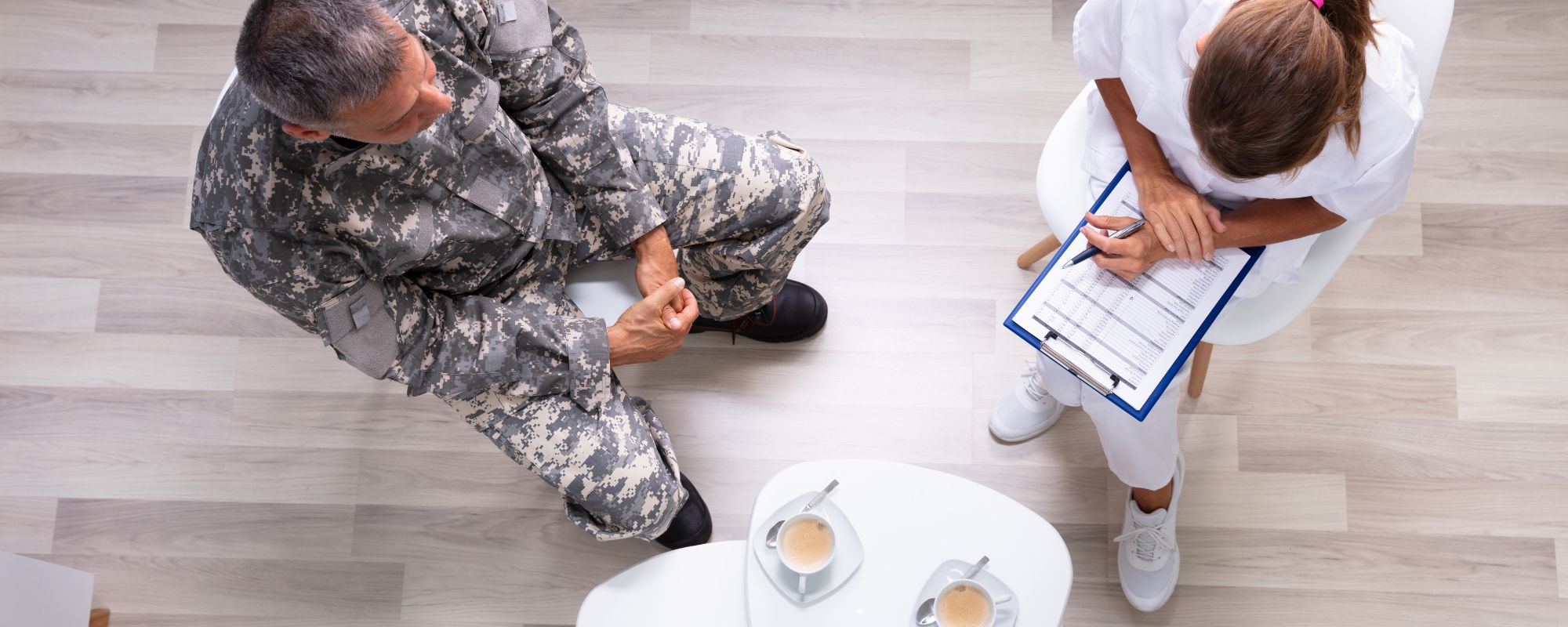Disordered sleeping is extremely common amongst recovering addicts and alcoholics. One of the things most affected by chronic alcohol consumption or drug use is a lack of sleep, or low quality sleep. One of the most common withdrawal symptoms for addiction across the board is sleeping issues, whether that manifests into insomnia or persistent sleepiness through out day-time hours.
Sleeping is extremely important, as it is the time where your body not only rests, but has time to repair and regenerate on cellular, cognitive, and molecular levels. Of course sleeping in itself is significant, but making sure the quality of your sleep is good will be beneficial for your mental and physical health, and aid you in spiritual growth as well. In this post, we are going to talk about sleeping and how to improve your sleep.
Sleep
As you sleep, you go through a sleep cycle that includes five stages of sleep. These stages of sleep were categorized by characteristics of the brain and body during your sleep cycle. Stages 1, 2, 3, and 4 are non-REM sleep stages, while stage 5 is considered REM sleep.
The five stages can be looked at more in-depth below:
- Stage One
- Stage Two
- Stage Three
- Stage Four
- Stage Five
The lightest stage of sleep. You are in Stage 1 when you are between being awake and asleep. Breathing occurs at a regular rate.
The sleeper is less able to be woken up, you’re in a slightly deeper sleep level than in stage one. Your body temperature begins to drop and heart rate slows down.
Stage three is also known as slow-wave sleep or delta sleep. Stage Three is a deep and restorative state of sleep. This stage begins the relaxation of muscles, an increase in supply of blood to the muscles, and a release of hormones. This stage of sleep marks energy being replenished and the body repairing and growing tissue.
Stage four is very similar to stage three of the sleep cycle. In stage four, the body is repairing and restoring itself, muscles are relaxed, and hormones are released.
Stage five of sleep is REM sleep. REM is thought to strengthen cognitive memory functions. In the fifth stage of the sleep cycle, dreaming takes place. Lack of REM sleep has been linked to reduced coping skills, migraines, being overweight, and an overall weakened immune system.
REM Sleep
REM or rapid eye movement sleep is a stage of sleep that is marked by the eyes moving rapidly and plays a part in learning, memory, and mood. During REM sleep, our brain is extremely active— in fact, our brain in REM sleep is almost as active as it is when we are awake. REM sleep is thought to help solidify memories. REM sleep is also the stage of sleeping in which we dream.
During REM sleep…
- breathing becomes faster and irregular
- heart rate increases
- blood pressure increases
- rapid eye movement
- changes in body temperature
- increased oxygen consumption
- sexual arousal in both men and women
- twitching in face and limbs
- vivid dreams
REM sleep is the optimum level of deep sleep, that’s not only restorative for the body, but the mind as well. REM sleep constitutes about 20% of our overall sleep. People who lack REM sleep will have trouble learning, retaining information, maintain neural connections by neural stimulation, etc.
How Do I Improve my Sleep Quality?
Simply sleeping for 7 or more hours each night does not ensure that you are getting the best quality of sleep. You may get a full eight hours of sleep, but continue to wake up feeling like you are not rested. The reason for this is that you are getting poor quality sleep, and therefore your body has not had time to regenerate itself.
Sleep quality contributes to your overall quality of life. Other factors that play into your overall health and wellness include: diet, physical wellness, emotional health, healthy habit-forming and self-care.
Luckily, addiction treatment gives you the opportunity to better yourself and overall wellness. There are many things that you can do to better your quality of sleep, we listed a few of the ways below:
- set up a sleep environment conducive to sleep
- practice a night-time routine
- leave an adequate amount of time to fall and stay asleep
- progressive muscle relaxation
- exercise
- relaxing music
- ask for melatonin
Set up a sleeping environment by reducing unnecessary noise, light pollution, set a comfortable temperature, and switching off any devices. Anything that can interrupt your sleep should be identified and resolved, so that you have the perfect space set up for restful sleep. We suggest letting your phone charge while it is off and away from you during sleep.
Building a solid and consistent night time routine will help your body recognize certain steps leading up to sleep. If you consistently follow the same steps every night before bed, your body will begin to relax and unwind as you follow these steps— your bedtime routine will become a precursor to sleep that both your mind and body will recognize.
An example of a night-time routine that we recommend is:
An hour before bed: drink a full glass of water or hot tea, brush your teeth, take a shower, brush your hair, and take any skincare steps like putting on lotion. We then recommend taking the next ten minutes to meditate. Try stretching after or before you meditate, to promote circulation and overall wellness. Then, you can journal for fifteen minutes about anything you would like. After journaling, turn off any lights that are still on, and climb into bed. Don’t forget to work in small routine steps like picking out clothes for the next day or setting an alarm for the morning.
Allot yourself an adequate amount of time for sleep. We recommend having about nine hours after your night time routine, specifically set aside for you to be asleep. This will allow for a period of time that you are trying to fall asleep. If you only leave yourself seven hours to sleep, for example, you may spend an hour trying to fall asleep, which would only leave six hours of actual sleep. Shoot for a full eight hours of sleep each night, which may mean winding down and getting ready for bed earlier than you normally would. Choose the same time each night to wind down, as this will be part of your routine— the more consistently you stick to a routine, the better.
Progressive muscle relaxation is a form of meditation. You can practice progressive muscle relaxation as you’re lying in bed, which we find especially helpful in promoting sleep. What you do is close your eyes, and mentally scan your body— beginning at the top of your head and moving down to the tips of your toes. As you are scanning your body, make an effort to relax each part of your body, relaxing each muscle one-by-one as you move downward. This is not only relaxing, but it will naturally slow down your heart rate and blood pressure, putting you closer to reaching the first stage of sleep.
Exercising during the day will improve your physical and mental health, but you can also practice lighter physical wellness activities like yoga at night, which will put your mind and body in a relaxed state that’s ready for sleep. Yoga will promote circulation, clarity of mind, mindfulness, and overall wellness. Try practicing some light yoga before bed to get your blood flowing and tire you out a bit.
Music with slow tempos and soft beats are proven to trigger a “relaxation response” in your body. This type of music will actually help you fall asleep by allowing your mind and body to relax. Also, listening to music is a way to practice mindfulness, or being in the present moment. Try music without lyrics, but soft sounds and relaxing background noises.
Try taking a natural over-the-counter medication called melatonin. Melatonin is a natural hormone that we already have in our bodies. Our natural melatonin is released when it gets dark outside, as to indicate that it’s time to go to sleep. This natural supplement is available at any pharmacy or health food store, without a prescription. Melatonin is non-addictive, non-habit forming, and an all natural remedy when it comes to sleeping well.
Persistent Sleep Difficulties
If you have persistent difficulties falling or staying asleep through out the night, it’s worth it to look into your sleep patterns and ask a medical professional for their opinion. Constant sleep difficulties could mean that you may have a sleep disorder. There are many sleep disorders, some of the most common sleep disorders are….
- insomnia
- sleep apnea
- narcolepsy
- non 24 sleep wake disorder (aka Non-24)
- restless legs syndrome
- Parasomnia
- REM sleep behavior disorder
Insomnia represents chronic issues falling and staying asleep.
Breathing difficulties during sleep cause the sleeper to wake up multiple times through out the night, usually unbeknownst to them. A common sign of sleep apnea is excessively loud snoring, and this disorder results in daytime sleepiness, morning headaches, etc.
People with narcolepsy can suddenly fall asleep at inopportune moments and usually spend their days in an in-between state of neither being awake nor being asleep. There is no differentiation between being awake versus being asleep, despite being in stimulating environments and not dependent on daytime or nighttime.
This is one example of a circadian rhythm sleep-wake disorder. Non-24 sleep wake disorder is characterized by a disruption of a normal circadian rhythm (our internal clock), resulting in excessive daytime sleepiness, insomnia, or another disorder.
A constant urge to move the limbs, mostly fueled by an uncomfortable sensation that prompts kicking and rapid movements. People with RLS kick their legs or move hundreds of times through out a single night of sleep.
Parasomnia is a category of sleep disorders that involve unwanted physical movement or actions that occur while the person is asleep. Examples of parasomnia include: sleepwalking, night terrors, sleep talking, etc.
REM sleep behavior disorder is a type of parasomnia. Sudden or intense movement during sleep; sleepers usually “act out dreams” through simultaneous movements in bed. People with REM sleep behavior disorder common thrash around in bed, get out of bed, sleepwalk, etc.
Keep in mind, that you may have a sleep disorder that is temporary due to withdrawal from drugs or alcohol. You should wait a couple weeks after fully detoxing in order to determine if your sleep troubles are persisting. For example, it takes about three months of consistent sleep difficulties to properly diagnose insomnia.
Reach Out
If you or someone you know is struggling with an addiction, please reach out to us at (877)-RECOVERY or (888) 534-9140. Our team makes themselves available to take your call 24 hours a day, 7 days a week. Because We Care.
References:
Leonard, Jayne. “What is REM sleep?.” Medical News Today. MediLexicon, Intl., 1 Sep. 2017. Web.
14 May. 2019.












